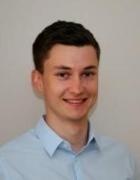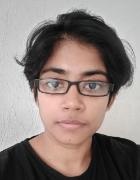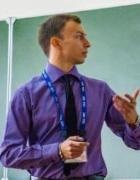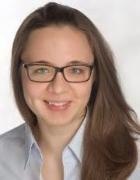Experimentelle Halbleiterphysik
Prof. Ian Sharp
Mitarbeiterinnen und Mitarbeiter der Arbeitsgruppe
Professor
| Photo | Akad. Grad | Vorname | Nachname | Raum | Telefon | |
|---|---|---|---|---|---|---|

|
Prof. Dr. | Ian | Sharp | – | +49 89 289-12750 |
Sekretariat
| Photo | Akad. Grad | Vorname | Nachname | Raum | Telefon | |
|---|---|---|---|---|---|---|
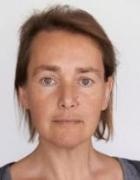
|
Joana Maria | Meyer Homem de Figueiredo | – | +49 89 289-11561 |
Wissenschaftlerinnen und Wissenschaftler
Andere Mitarbeiterinnen und Mitarbeiter
| Photo | Akad. Grad | Vorname | Nachname | Raum | Telefon | |
|---|---|---|---|---|---|---|

|
M.Sc. | Jianian | Chen | – | – | |

|
M.Eng. | Pan | Ding | – | +49 89 289-11383 |
Lehrangebot der Arbeitsgruppe
Lehrveranstaltungen mit Beteiligung der Arbeitsgruppe
Abgeschlossene und laufende Abschlussarbeiten an der Arbeitsgruppe
- Atomic Layer Deposition of Pt-doped Ta₂O₅ Coatings for Photoelectrochemistry
- Abschlussarbeit im Masterstudiengang Physics (Applied and Engineering Physics)
- Themensteller(in): Ian Sharp
- The Effects of P-type Doping on Crystalline Structure and Electronic Properties of Bismuth Vanadate
- Abschlussarbeit im Masterstudiengang Physik (Physik der kondensierten Materie)
- Themensteller(in): Ian Sharp
- Development of Novel Substrates for In Situ Time-Resolved Infrared Spectroscopy of Catalytically Active Interfaces
- Abschlussarbeit im Masterstudiengang Physik (Physik der kondensierten Materie)
- Themensteller(in): Ian Sharp
- Combinatorial Exploration of Hafnium-Doped Tantalum Nitride Thin Film Photoanodes
- Abschlussarbeit im Bachelorstudiengang Physik
- Themensteller(in): Ian Sharp
- Emerging Oxynitride Photoelectrodes for Stable and Efficient Energy Conversion
- Abschlussarbeit im Masterstudiengang Physics (Applied and Engineering Physics)
- Themensteller(in): Ian Sharp
- Synthesis and Characterization of Ta<sub>3</sub>N<sub>5</sub>/CoN<sub>x</sub> Multilayer Photoanodes for Efficient and Stable Energy Conversion
- Abschlussarbeit im Masterstudiengang Physik (Physik der kondensierten Materie)
- Themensteller(in): Ian Sharp
- thermal treatment of sputtered BVO for enhanced PEC performance
- Abschlussarbeit im Bachelorstudiengang Physik
- Themensteller(in): Ian Sharp
- Untersuchung der Auswirkung von Feuchtigkeit auf die Dotierungstypen von AgBiS2-Quantenpunkten
- Abschlussarbeit im Bachelorstudiengang Physik
- Themensteller(in): Ian Sharp
- Investigation of electric field and charge carrier dynamics at photocathode/electrolyte interfaces of InP semiconductors with TiOx thin films
- Abschlussarbeit im Masterstudiengang Physics (Applied and Engineering Physics)
- Themensteller(in): Ian Sharp
